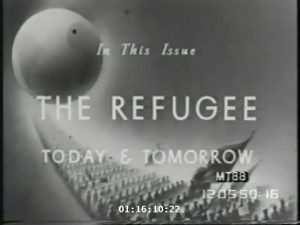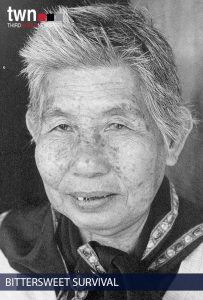Note that all material in this archive represents work in progress by BA students.
If you identify inaccuracies or copyright infringements, please email us immediately.
Prepared by Joanne and Grace, January 2021.
Edited by Maddie, January 2023
Initially we began our research by looking at Moral Panics in Britain and the differing sides and opinions held about them which vary across the country. We also took a look at the NHS and the influence they have on the populous. The issues in regard to the strains on the NHS have been blamed for many years on refugees who come to the UK but from taking a look back at the foundations of the service it was stated and expressed that the NHS is for all no matter what your background is. From developing our research, our point of view changed to a more comparative story which enables us to get a much broader view on refugee issues.
- NHS Pamphlet: https://twitter.com/Elpad/status/996343611133440000
News Articles about Refugees in Hotels:
- https://www.theguardian.com/world/2020/aug/28/far-right-activists-filmed-hassling-asylum-seekers-in-hotels
- https://www.theguardian.com/politics/2020/aug/28/are-asylum-seekers-really-living-in-luxury-hotels-qa
- https://www.mirror.co.uk/news/uk-news/cowardly-britain-first-go-migrant-22595314
BBC Documentary ‘The Insider with Reggie Yates: In a Refugee Camp’
- The Domiz Refugee Camp: Set up in 2012 by the United Nations
- 32,000 Residents reside in the camp.
- 2 Hospitals and 7 Schools.
- 5,500 Buildings with 55 miles of electrical wire.
- 500 Babies are born each year.
- Serviced roads littered with market stalls, restaurants, bakers and dress shops.
- The Documentary offers a valuable inside look at a refugee camp and what really happens inside the confinement.
- There are interviews too from refugees who have been in the camp for a varying amount of time and the issues they themselves have faced.
- Ranging from home destruction to the desire to be smuggled abroad there is a small segment focussed on each area.
Decolonial Approaches to Refugee Migration
Updated by Izzy and Alexei, January 2023
https://www.berghahnjournals.com/view/journals/migration-and-society/3/1/arms030115.xml : This is a conversation between the academics, Nof Nasser-Eddin and Nour Abu-Assab, which delves into how Eurocentrism and decolonialism has impacted thought around refugee migration. Through colonialism, there has been a narrative created of the global North being superior to the global South. Eurocentrism arguably fuels the stigma created by some regarding the reasons as to why refugees flee their home country.
‘People producing knowledge about their experiences themselves, describing or talking about their own realities in their own terms and their own terminologies. It’s more than about their experiences, it’s about their voice being acknowledged as a valid source of knowledge…’
Lost and Regained Agency – Moral Panics Shown through Film
Updated by Alexei and Izzy, January 2023
The March of Time: The Refugee – Today and Tomorrow (1938)
Directed by Frank P. Donovan
Synopsis: A compelling mixture of anger and hope drives this portrayal of the persecution of refugees in Europe and Asia. The film presents a slowly building sense of injustice which climaxes in the powerful central section of the film: a depiction of Germany’s treatment of its Jewish citizens which, in its unequivocally anti-fascist message, distinguishes March of Time from other newsreels’ more timid treatment of similar events.
Two years in the making, this impassioned polemic against the anti-Semitic policies of Nazi Germany exemplifies the zeal with which March of Time reported politically and socially controversial issues. The use of maps and statistics to convey the scale of the problem is also typical, as is the sense of drama created by the mixture of real documentary footage and reconstructed scenes. The shots of Gestapo headquarters, for instance, were filmed at March of Time’s New York Studios, whereas the footage from Woburn House in London showing the interrogation of refugees is genuine.
Length: 17:00
Available to watch in full at: https://player.bfi.org.uk/free/film/watch-refugee-today-and-tomorrow-1938-online
Synopsis from https://player.bfi.org.uk/free/film/watch-refugee-today-and-tomorrow-1938-online
Image from https://collections.ushmm.org/search/catalog/irn1002868
Bittersweet Survival: Southeast Asian Refugees in America (1982)
Directed by Christine Choy
Synopsis:
This documentary examines the re-settlement of South-East Asian refugees in the United States in the aftermath of the Vietnam War. The film begins with a montage of riveting footage depicting the devastating effects of the war. It then unveils the mixed reception given Vietnamese refugees in the United States, from battles with local fishermen in Monterey, California, to conflicts in Philadelphia where their arrival in the city’s poorest neighborhoods kindled resentment in the Black community. The film also explores their struggle to cope with life in the U.S. and maintain their identity.
“Technique for us is secondary. The people themselves have a rich life experience, a knowledge of history and their culture and community organization. And these people are far more qualified to make films than people who have learned their skills in a school.”
-Christine Choy
Length: 30:00
Trailer available at: https://search.alexanderstreet.com/preview/work/bibliographic_entity%7Cvideo_work%7C5053774
Synopsis and image from https://www.twn.org/catalog/pages/responsive/cpage.aspx?rec=796
The Last Refugees (2018)
Directed by Tanaz Eshaghian
Synopsis: A Syrian family arrives in Philadelphia full of hope and excitement, just ahead of President Trump’s Muslim travel ban. With only three months of financial aid, scant employment possibilities and limited educational options the family’s luck quickly turns to lack in the “land of opportunity”.
Length: 38:00
Trailer available at: https://jer-cin.org.il/en/event/26141